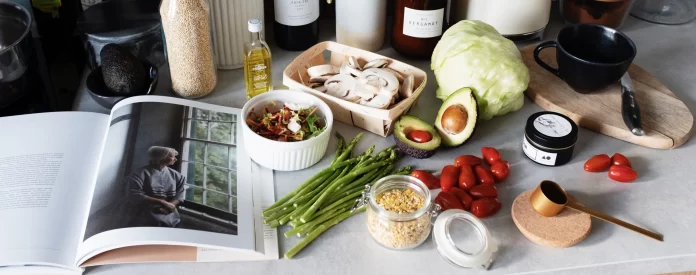Estimated reading time: 0 minutes
“In the context of Ayurveda, a holistic healing tradition, the concept of inflammation, referred to as a ‘Pitta’ imbalance, holds a central role in comprehending and addressing various health conditions. Ayurveda underscores the significant role of diet in either exacerbating or alleviating inflammation in the body. By blending Ayurvedic insights with contemporary knowledge about inflammatory foods, individuals can adopt a well-rounded dietary approach that not only mitigates inflammation but also fosters overall health and well-being.
Ayurvedic View on Inflammatory Foods:
Ayurveda identifies specific foods and lifestyle practices that can excessively increase ‘Agni,’ the digestive fire, resulting in an imbalance in the Pitta dosha, associated with heat and inflammation. The following Ayurvedic insights, combined with modern understanding of inflammatory foods, shed light on this matter:
1. Moderate Hot and Spicy Foods:
Ayurveda advises moderation in the consumption of excessively hot and spicy foods, which have the potential to aggravate Pitta. This aligns with modern knowledge that certain spices, while beneficial in small amounts, can trigger inflammatory responses when overconsumed.
2. Reduce Trans and Saturated Fats:
Foods rich in trans fats and saturated fats are considered heavy and challenging to digest, leading to toxin accumulation and inflammation. Ayurveda recommends a low-fat diet, focusing on healthier fats like ghee (clarified butter) and cold-pressed oils such as olive and coconut oil, which are easier to digest and have a soothing effect on Pitta.
3. Limit Refined Sugars and Carbs:
Ayurveda acknowledges that excessive sweetness can disturb the balance of Pitta and Kapha, resulting in inflammation and other health issues. Therefore, it advises moderation in the consumption of sweet foods, favoring natural sweeteners like raw honey (in moderation) and fresh fruits that provide balanced nutrition without causing blood sugar spikes.
4. Balance Omega-6 and Omega-3 Fatty Acids:
Ayurveda’s principle of dietary balance to maintain doshic equilibrium aligns with modern advice on balancing omega-6 and omega-3 fatty acids. Ayurveda recommends incorporating omega-3 rich foods like walnuts, flaxseeds, and fatty fish (for non-vegetarians) to support the body’s anti-inflammatory processes.
5. Minimize Artificial Additives and Processed Foods:
Ayurveda promotes the consumption of fresh, whole foods prepared with natural herbs and spices. This approach inherently limits exposure to artificial additives and processed foods, which are known to trigger inflammation.
6. Incorporate Anti-inflammatory Herbs and Spices:
Ayurveda recognizes the anti-inflammatory and digestive properties of herbs and spices such as turmeric, ginger, coriander, fennel, and cardamom. Including these spices in the diet can help reduce inflammation and promote overall health.
Ayurvedic Practices to Alleviate Inflammation:
– Follow a Dosha-Specific Ayurvedic Diet:
Identifying one’s predominant dosha and its current balance state can guide dietary choices that prevent inflammation. Consultation with an Ayurvedic practitioner can offer personalized recommendations regarding food preferences and avoidances.
– Regular Detoxification:
Ayurveda advocates periodic detoxification to eliminate toxins (ama) and prevent inflammation. Tailored Panchakarma treatments can cleanse the body and restore doshic equilibrium.
– Embrace a Holistic Lifestyle:
Beyond diet, Ayurveda underscores the importance of a balanced lifestyle, encompassing regular exercise, sufficient sleep, stress management practices such as yoga and meditation, and daily routines (Dinacharya) that align with natural circadian rhythms.
Integrating Ayurvedic principles with contemporary nutritional science presents a comprehensive approach to managing inflammation through diet. By comprehending the impact of specific foods and lifestyle choices on our doshic balance, we can make informed decisions that support the body’s innate healing processes and foster long-term health and vitality.”
Related –
Know more about Digestive & Gastroentric Ayurveda Treatments.Get help from the right experts.
GET IN TOUCH


Recent comments